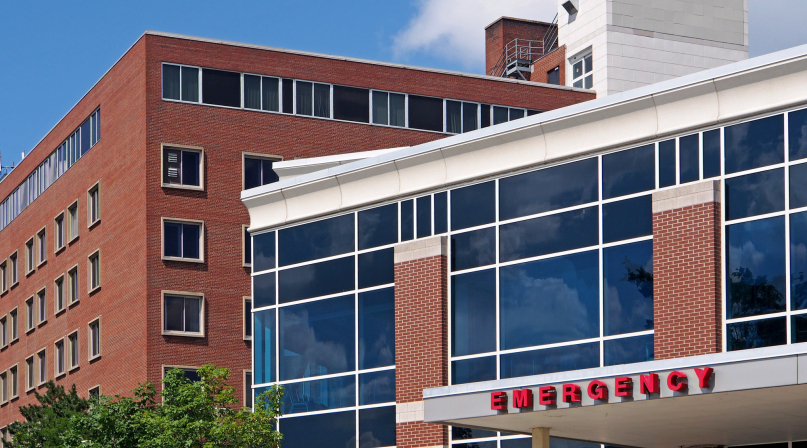CMS releases new guidance on Medicaid provider tax provisions in OBBBA
Author

Blaire Bryant

Naomi Freel
Upcoming Events
Related News

Key Takeaways
The Centers for Medicare & Medicaid Services (CMS) has released new guidance outlining how it will implement significant Medicaid financing changes enacted in the One Big Beautiful Bill Act (OBBBA). These provisions restrict states’ ability to use health care-related taxes, commonly known as provider taxes, to help finance the non-federal share of Medicaid. Because nearly every state relies on provider taxes to support Medicaid, these changes will have major implications for state budgets and, in many cases, for counties that share in Medicaid financing responsibilities.
What does this new guidance do
- Clarifies the prohibition on new or increased provider taxes: OBBBA prohibits all states from creating new provider taxes or increasing the rates of existing provider taxes beyond what was in effect on July 4, 2025. Under the new guidance, each of the following requirements must be met in order for a provider tax to be allowed as an “existing” tax:
- A tax must have been fully enacted, meaning the entire legislative process was complete, by July 4, 2025.
- A tax must also have been imposed, meaning the state (or local government) was actively collecting revenue under that structure, as of July 4, 2025.
- If a tax required a waiver of the broad-based (all providers are taxed) or uniformity (providers are taxed at the same rate) requirement, the waiver must have been approved by CMS before July 4, 2025.
- Provides timeline for new indirect hold harmless thresholds: Beginning October 1, 2026, CMS will implement revised thresholds limiting how much revenue states can generate from existing provider taxes. These thresholds will be tied to the tax levels that were enacted and imposed as of July 4, 2025. CMS will provide additional guidance and undertake rulemaking to finalize how these thresholds will be calculated.
- Provides details on transition periods for now-prohibited “uniformity waiver” provider taxes: OBBBA also restricts taxes that rely on “uniformity waivers.” These are taxes in which certain providers, often those with higher Medicaid patient volume, pay higher rates than others. CMS will allow limited transition periods for states to unwind these now-prohibited taxes:
- Managed care organization (MCO) taxes: allowed through the end of the state fiscal year ending in 2026
- Other provider taxes (including hospitals): allowed through the end of the state fiscal year ending in 2028 or until October 1, 2028, whichever comes first.
- Notes states’ ability to amend prohibited taxes: CMS suggests that during the transition periods, states may be able to modify prohibited uniformity waiver taxes to remove differential Medicaid-based rates without those changes counting as new or increased taxes.
- Additional reductions for expansion states: Separately, OBBBA phases down the provider tax safe harbor threshold in Medicaid expansion states, decreasing the allowable tax rate by 0.5 percent each year beginning October 1, 2027, resulting in a final threshold of 3.5 percent in 2032. This reduction applies to all provider types except nursing facilities and intermediate care facilities for individuals with intellectual disabilities.
County impact
These changes will reduce the amount of provider tax revenue that states can use to fund Medicaid. For counties that contribute directly to the non-federal share of Medicaid, this may mean a larger share of Medicaid financing shifts to county governments. Even outside of the 25 states where counties have a direct Medicaid cost-sharing role, the overall reduction in available state Medicaid revenue can put pressure on state budgets and reduce local passthroughs. As more state dollars must be redirected to maintain Medicaid services, fewer resources may be available to support county programs in public health, behavioral health, long-term care, social services and other community needs. Counties may ultimately face an increased share of Medicaid payments and reduced state support for critical local initiatives once these provider tax reforms take effect.
Related News

Drug tracking software helps counties identify trends, save lives
Florida counties are using an artificial intelligence tool called Drug TRAC to track and report drug trends, with the aim of providing quicker outreach and saving lives.

White House Executive Order establishes national substance use disorder response
On January 29, the White House issued an Executive Order (EO) establishing the Great American Recovery Initiative, a new federal effort aimed at coordinating a national response to substance use disorder (SUD).

USDA and HHS release new dietary guidelines
On January 7, U.S. Department of Agriculture Secretary Brooke Rollins and U.S. Department of Health and Human Services Secretary Robert F. Kennedy, Jr. unveiled the new Dietary Guidelines for Americans, 2025–2030.
Resource
Federal Reforms to Medicaid Financing: What Counties Should Know
